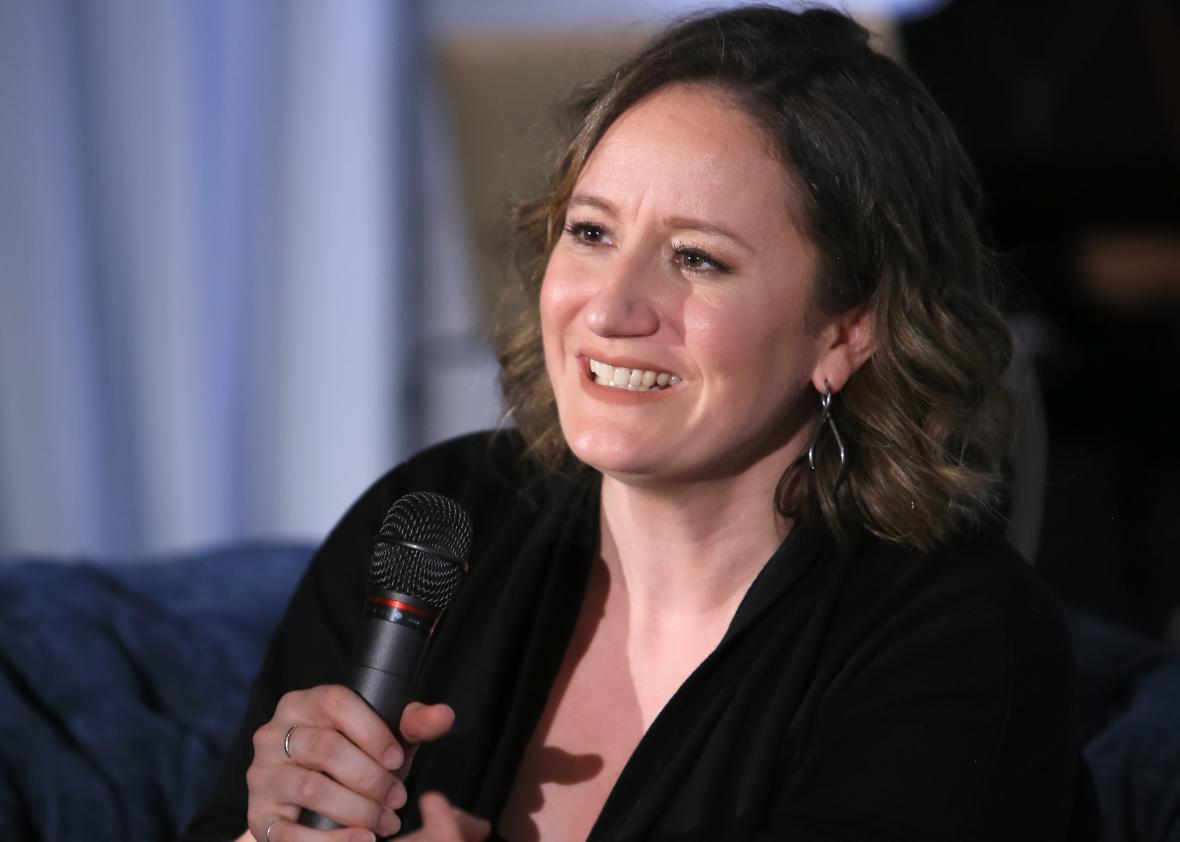Last month the National Weather Service made the long-overdue decision to cease delivering its forecasts entirely in capital letters. (Its all-caps screeds were relics of a time when weather reports were sent by teleprinter.) As the National Oceanic and Atmospheric Administration notes in its announcement, “[I]n web speak, use of capital letters became synonymous with angry shouting.” Online, we type in all caps when we’re enraged—ARE YOU SERIOUS?!—or overjoyed—YESSSSSSS—or amused—LOLOLOLOLOLOLOL.
It’s not just online or in all-caps constructions that capital letters carry emotional weight. Elsewhere, we capitalize words to give them gravity. Capitalization elevates nouns from common to proper: It’s not just a white house; it’s the White House. We don’t simply live in a collection of some united states, but in the United States. Charles Dickens didn’t just write a tale about a couple of cities; he wrote A Tale of Two Cities—and for that matter, Charles Dickens isn’t charles dickens, but Charles Dickens. Capital letters set these words apart and demarcate their uniqueness. There are many white houses but only one White House. There are millions of charles but only one Charles Dickens.
Of course this is but one way we use capital letters, which are seemingly one of the simpler stylistic choices in the English language. As Bryan A. Garner notes in his grammarians’ gospel Modern American Usage, “The decision whether to capitalize a word seems simple at first. There are really just three rules: capitalize the first word of a sentence, the pronoun I, and proper names. What could be easier?”
But beneath this elementary rule lies a complex web of exceptions and stylistic politics. Or as Garner puts it: “Then the ‘yeah-but’ bug bites.” We capitalize the Supreme Court, for instance, and on subsequent reference some (including Slate staff writer Mark Joseph Stern) would say we should call it the Court. But in that second reference, we’ve passed from the proper back to the common and it’s once again a court, at least according to Slate’s in-house style rules. Garner cites other examples: Why is Stone Age capitalized but space age not? October stands at attention but autumn lies low. It was the Roaring Twenties but the golden age of radio. In German, all nouns are capitalized! For the most part, these are questions of style and consistency with little ultimate consequence beyond the copy desk.
Occasionally, however, capitalization becomes political—and I mean truly political, beyond the fraught internal politics and meta-dramas of grammar sticklers. In 2010 Jon Lackman wrote in Slate about how Tea Party members favored capitalizing common nouns to pay homage to the Constitution and associate themselves with the Founding Fathers.
While some lean on excess capitalization, others shy from it entirely: When Gloria Jean Watkins took on a pen name, she chose to style it as bell hooks, sans initial capital letters, in order to draw attention to her work rather than herself. “When the feminist movement was at its zenith in the late 60’s and early 70’s, there was a lot of moving away from the idea of the person. It was: let’s talk about the ideas behind the work, and the people matter less,” she said in a 2012 interview.
Perhaps most famously, modernist poet E.E. Cummings eschewed capitalization in many of his poems, often downgrading the word i—“I’m a small eye poet,” he once wrote—and occasionally signing his name in lowercase. This stance became so entwined with his persona that his name is often rendered e.e. cummings and an entire apocryphal story about his name change persists online and in our collective conscious. (His wife insisted this never happened.)
Cummings’ stance against capitalizing his own name may be a myth, but in the years since, others have chosen, like Gloria Jean Watkins, to take on lowercased pen or stage names—k.d. lang, eden ahbez, will.i.am.—for various reasons. To draw attention away from the self and toward one’s work, yes, but also to free oneself from the confines of an elitist linguistic tradition that has left these individuals feeling othered. Some have gone as far as to legally change their names; social media scholar and activist danah boyd comes to mind. “[I]t’s my name and i should be able to frame it as i see fit, as my adjective, not someone else’s,” she writes on her website as part of an explanation of the personal and political reasons for her name change.
Names are, indeed, highly personal and individual things, and I don’t deny that they can wield great power. They’ve been the vessel through which our patriarchal society has traveled; they’ve been bestowed by slavers and reclaimed by the once-enslaved; they’ve segregated us; they’ve united us; and they’ve been the battleground on which many a feminist victory was won.
But in standard print, capitalizing these proper names is not an act of violence nor of authoritarianism nor of betrayal. It is simply an attempt at clarity. “Capitalization is part of the social convention for writing English,” writes Bill Poser at the Language Log. When a reader opens up an article or a blog post here at Slate or elsewhere, she does so with the expectation that it will conform to these “social conventions” of written English—certain norms and syntactic cues that will help digest the information therein as easily as possible. Capitalization is one of those cues. When I capitalize Danah Boyd or Bell Hooks, it’s not meant as an affront on those women but as an overture to the reader.
That’s not to say I would ever prescribe to them how they should sign their own names or monogram their bath towels or print up their own business cards, but in the public square that is the news media, we’ve all agreed to play by certain rules. And now even the National Weather Service is on board. Next up: the music industry.
